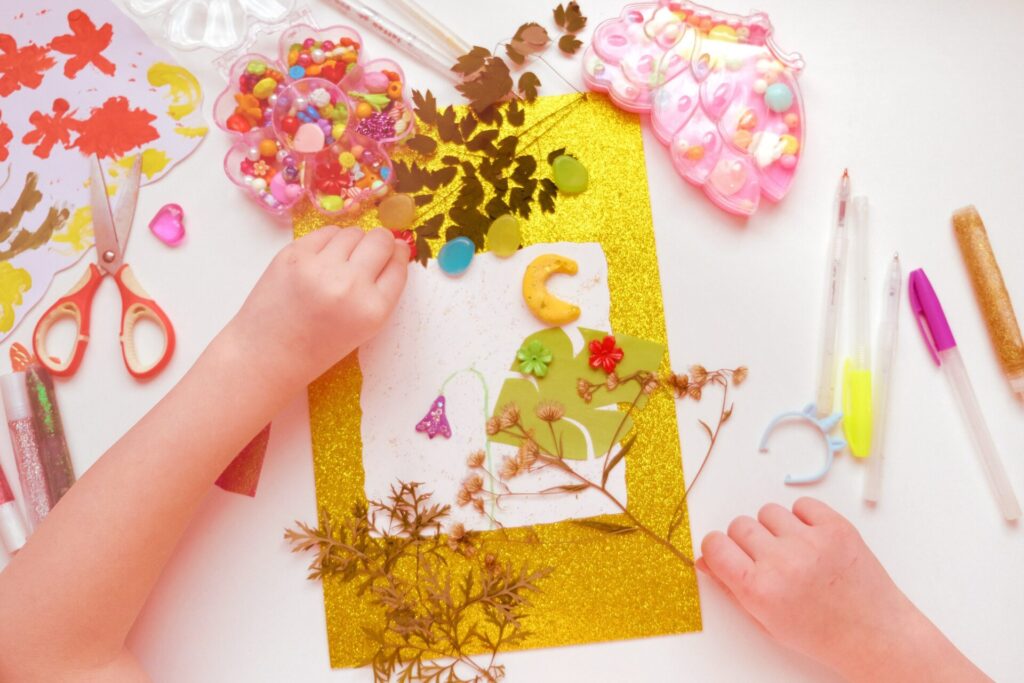I started fretting about my kids long before they were born. It began with What to Expect When You’re Expecting. I would perch the book on my growing belly in bed and read from its catalogue of horrors wide-eyed, as if it were a Stephen King novel: blighted ovums and uterine rupture, toxoplasmosis from touching kitty litter, listeriosis from chewing on brie, the possibility that the baby’s hiccups could mean a knotted umbilical cord. Like a bad accident, I couldn’t take my eyes off the words, my anxiety ramping up with the turn of every page. I’d nudge my husband awake and he’d say, “Stop worrying. Everything will be fine.” What’s wrong with him, I’d wonder.
That was 15 years ago when Ruby was born. She was not an “easy” child, with a head of fiery red curls and a temper to match. She screamed with colic for hours. She resisted tidying up after playtime in preschool. She’d rage at me if she didn’t get what she wanted. She was sent to the principal’s office in kindergarten for getting into a slugfest with her best friend. One teacher thought she had a “pencil-holding defi ciency.” I fretted over her future and bought more books: Raise Your Kid Without Raising Your Voice, The Explosive Child and How to Talk So Kids Will Listen & Listen So Kids Will Talk.
My husband would say, “Stop worrying. Everything will be fine.”
In Grade 3 she was identifi ed as having dyslexia. In Grade 4, after a year of constantly clearing her throat for no known reason, she was diagnosed with Tourette’s Syndrome. She didn’t get asked on many play dates so I would arrange them for her. If she wasn’t invited to a birthday party, she didn’t care all that much, but I was crushed. I compared myself to the other mothers who had seemingly easygoing kids and wondered what I was doing wrong. Instead of admiring my daughter’s willful streak, her tough-minded attitude and her seeming disdain for what other people thought of her, I just wanted her to fit in – to try and please a little more and push back a little less. As my anxiety ramped up, parenting books weren’t going to cut it anymore. What I needed was therapy.
Three years after Ruby was born, I had another daughter, Lucy. I had less energy for Lucy because I was so focused on Ruby’s “issues.” But Lucy seemed to need less of me, too. She was an “easy” baby: went to sleep without a peep, woke up with a smile, and generally did what was expected of her. Lucy, agreeable and positive, got along with everyone. I never had to orchestrate play dates for her.
I’ll never forget the time I was sitting in a Chinese restaurant in Montreal with the two of them when they were about five and eight years old. Lucy was thrilled to be sampling Chinese food. Ruby was complaining that there wasn’t anything she liked on the menu. As I sat across from them, the words “light and dark, light and dark” kept repeating themselves in my mind. For Lucy, the glass was always half full, maybe it always would be. The same wasn’t true for Ruby. Two kids, same parents, two completely different temperaments. Go fi gure. I could fight it or I could accept it. Better yet, I could celebrate it.
Therapy helped me understand that worry was useless but action was helpful. So I got Ruby remedial help for her dyslexia, which improved her spelling. She went on medication for a year to reduce her Tourette’s tics. Eventually the tics completely disappeared just as mysteriously as they had arrived. I focused on her strengths – her academic skills, love of learning, keen sense of justice, and her ability to offer up strong opinions on everything from communism and Rihanna (both bad) to John Hughes’ movies (most excellent).
By the time she was in middle school, I was a much different mother. I didn’t worry and I didn’t hover. I didn’t interfere in her school work or offer advice on clothing or music or suggest whom she should hang out with. If she was in a bad mood, I just let her be in a bad mood, confident that it would blow over – just like my moods do. We fought sometimes, but that was okay. I didn’t beat myself up if I made mistakes. I knew I was a “good enough” mom. In fact, most days I was a pretty damn good one. I came to the realization that parenting isn’t about product development; it’s about loving and accepting your kids for who they are.
The qualities I once saw as problematic, I now view as strengths. Ruby’s willful streak means she has a mind of her own and isn’t easily swayed by others, her tough-mindedness means she isn’t afraid to express her opinions and stand up for herself, not worrying about what others think means she has the confidence to just be herself. As I backed off and just let her be, a funny thing happened. Her temper cooled and we became much more affectionate with each other. Now in Grade 10, Ruby loves music and math. She’s a self-starter who is the first one up in our house in the morning. She makes her own breakfast and lunch, earns her own money and applies herself diligently in school.
It took me a while but I finally realized the course of my daughters’ lives is out of my hands. I can provide security and love, the foundational ingredients any kid needs to begin to build a happy life, but that won’t prevent them from encountering all kinds of struggles, just as I have. Knowing there’s little I can do to change the outcome is a kind of sweet relief. Their lives are out of my hands and are theirs to live.
Bad things may happen: other girls will be mean to them in school, they will get zits, they may not go to university, they may get dumped, divorced or not be able to have children.
Of course, I hope none of those things happen, but I also realize I am powerless to prevent them. Today, I realize I should have thrown out that copy of What to Expect When You’re Expecting 15 years ago and listened to my husband’s advice instead: “Stop worrying. Everything will be fine.”
8 Reasons to Stop Being A Helicopter Parent: How hovering hurts you – and your kids
- It could wreck your marriage: In her book Marriage Confidential: Love in the Post Romantic Age, author Pamela Haag laments how intensive parenting takes its toll on a marriage. “Children hold a different place in the inner life of a marriage today…. [they] are in some ways the new spouses,” she says, adding that when parents are constantly hovering and fussing over their children “the marriage suffers.”
- It can make your kids depressed: Being overly involved in adult kids’ lives decreases their feelings of autonomy, competence and connection and leads to increased reports of feeling depressed and dissatisfied, according to a study conducted by researchers at University of Mary Washington and published last year in the Journal of Child and Family Studies.
- It can make you depressed, too: The same researchers published a similar report in the Journal of Child and Family Studies that found women who engaged in “intense mothering” were not as happy as more relaxed moms.
- It keeps your kids dependent on you: “If you sail through childhood completely insulated, when you come out the other side and have to stand on your own two feet, you won’t be able to make it,” says Carl Honoré, author of Rescuing our Children from the Culture of Hyper-Parenting.
- It’s narcissistic: “We’ve overcorrected in the direction of thinking that parental influence is everything and I don’t believe it is. Kids are hardwired to be who they are, they are their own people,” says Haag. “It’s egomaniacal for parents to think that their kids reflect on them and how they turn out is their responsibility entirely.”
- You’ll limit your own life: “When all of your energy goes into parenting, there is less energy for the other adult roles you could have – being a partner, community member, activist, someone who loves their work, a good friend,” says Haag. “The more of you that gets sucked into parenting, the less those roles get tended.”
- Your kids won’t learn to be resilient: When we try to shield our kids from failure, we rob them of the chance to develop the resilience they’ll need to handle life’s challenges. “Kids need to experience painful non-catastrophic failure,” says Toronto psychologist Alex Russell, author of Drop the Worry Ball: How to Parent in the Age of Entitlement, so that they can learn to do better the next time. Honoré notes that recovering from failure is key to building up resilience.
- Relieving kids of every discomfort can turn them into helpless adults: If you treat your kids like they’re incompetent and that you need to take care of everything for them – from making their breakfast to filling out their university admission application – pretty soon they actually will become incompetent. The goal, says Russell, “is to train your kids to be essentially self-sufficient at 18.”
Anne Bokma is a freelance writer based in Hamilton, Ont., and a frequent contributor to ParentsCanada. She is glad she’s turned in her wings.
Originally published in ParentsCanada magazine, November 2013.









